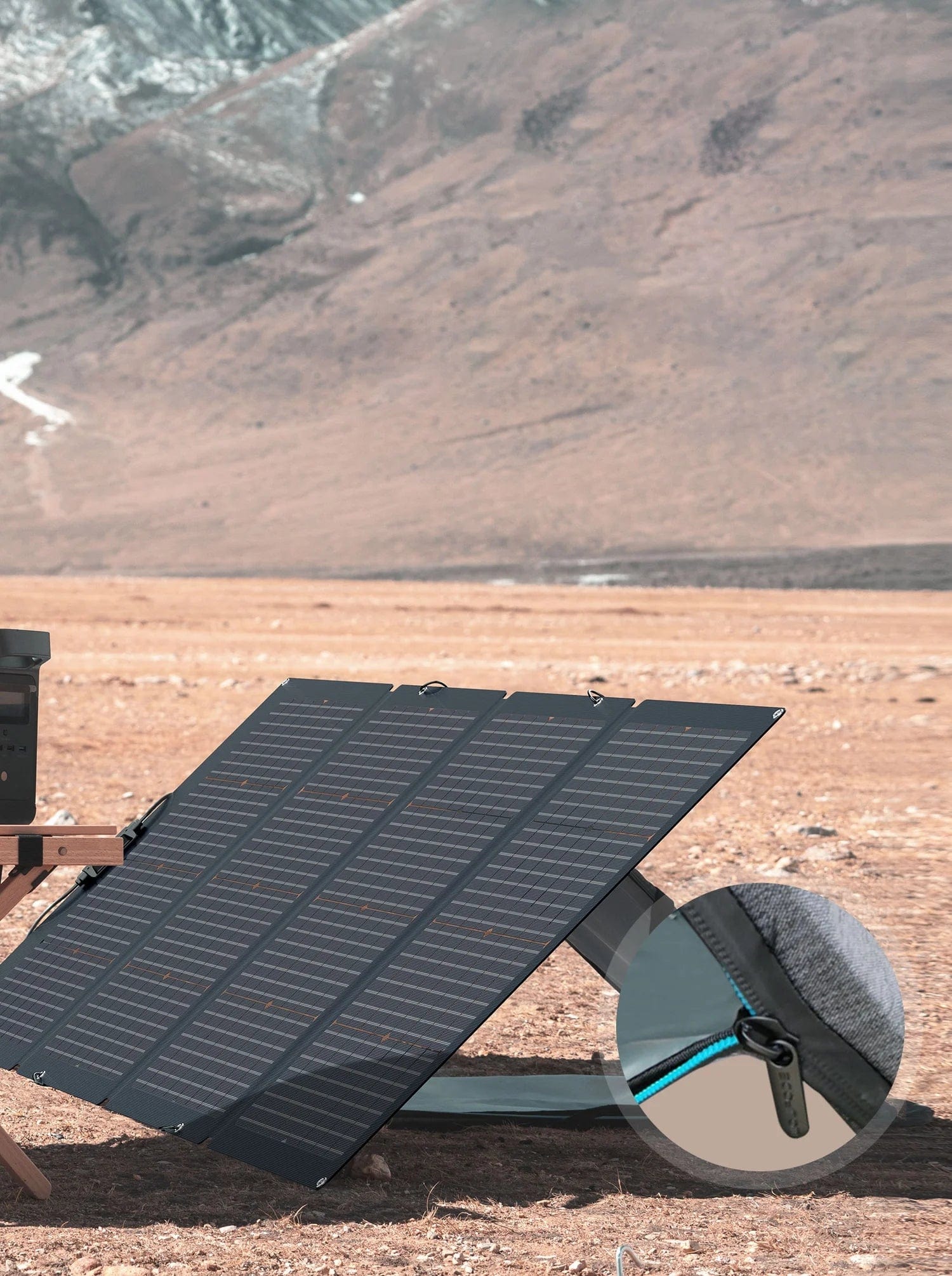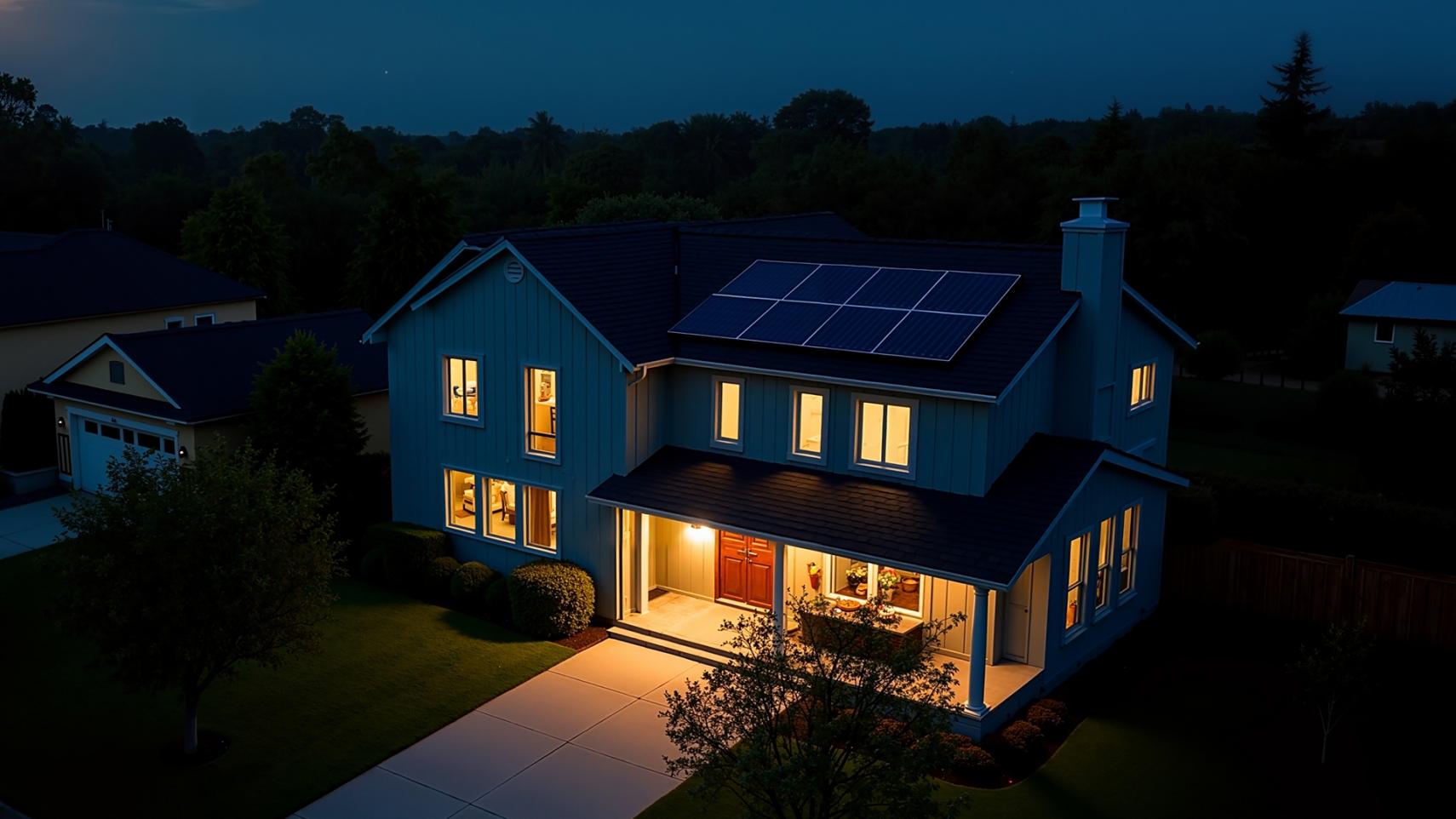What Are the Benefits of Energy Independence?
What Is Energy Independence?
Energy independence means producing, storing, and consuming power locally without relying on external grids or foreign energy imports. For households, this usually involves solar panels, home batteries, and smart energy management. For nations, it reduces dependence on imported oil, gas, or coal. The concept emerged as a response to volatile energy prices, increasing blackouts, and rising climate concerns. With advances in solar, battery, and smart home technologies, energy independence is no longer a dream—it is an achievable goal for both families and entire countries.
Another sad electricity bill? Air conditioning in the summer sends monthly bills over $300, and winter heating bills are even worse. Even worse, when typhoons strike and power is lost for three days, all the food in your fridge goes bad, your kids are unable to take online classes, and medical equipment for elderly family members shuts down. If you have a baby or medical equipment that needs to be powered constantly, blackouts turn into a nightmare.
Do these situations sound familiar? As electricity rates increase and extreme weather events become more common, more families are looking for energy independence options. Generate sunlight from your own rooftop, bank power in your own batteries, and never again be at the mercy of grid fluctuations and surprise outages.
Energy independence is not a pipe dream —it is a reality. It's increasingly a viable option. Here's how it can revolutionize your life, delivering real security and economic advantage to your family.
Benefits of Energy Independence
Energy independence brings real gains to both countries and families. When energy is made, stored, and used locally, life becomes more stable. The economy grows stronger. Power is easier to manage. And homes become safer during outages. These benefits are not far away—they are already real for many people and places. Let’s look at what changes when a country or a household gains control over its own energy.
5 Benefits for Countries
When a country runs on its own energy, it no longer depends on outside sources. That brings more safety, more jobs, and more long-term strength.
More National Security
Power generated within the country remains secure during global conflicts. A war overseas or a shipping delay does not stop wind from blowing or the sun from shining at home. The energy supply stays stable even when the world feels uncertain.
Less Market Risk
Oil prices often rise quickly during crisis periods. But local solar and wind do not follow global fuel prices. That gives the country more price control. Long-term plans can stay on track without surprise jumps in cost.
Job Growth and Local Economy
Every local energy project creates jobs. From factory workers to electricians, many people need to build and install systems. These jobs often stay in the same community for years, bringing steady income to towns and cities.
Cleaner Environment
Wind, solar, and hydro systems do not release smoke or toxic gases. That helps reduce asthma and heart problems caused by dirty air. Local water and farmland stay cleaner. Nature has more room to heal and stay balanced.
Better Use of Resources
Different areas can rely heavily on their strengths. The desert can host solar farms. The plains can hold wind farms. Rivers and dams can serve mountain regions. This local use of natural energy fits each place without extra transport costs.
5 Benefits for Individuals
When a household gains energy independence, life becomes easier to plan and safer during emergencies. Bills go down, and confidence goes up.
Stable Power During Outages
With a backup battery at home, you still have power when the grid fails. You can keep your phone charged, your food cold, and your medical gear working. You do not need to rush to a shelter or stay in the dark.
Lower Monthly Bills
After setting up your own energy system, your monthly costs often shrink. You pay less to the power company and use more power from your own roof. Over time, many families save thousands of dollars.
Less Stress About Energy Prices
When utility prices rise, many people feel trapped. But if you rely on solar and battery power, your cost stays about the same. You can worry less during peak hours or summer heat waves.
Freedom From the Grid
You decide when to charge your system, when to store power, and when to use it. You are not tied to the grid’s schedule or price rules. If you want to go off-grid for a day or more, you can.
Home Value Increases
Smart homes with energy systems often sell faster and at a better price. Buyers look for homes with solar panels, batteries, and smart controls. These upgrades show that the home is future-ready and easier to live in.


Is It Possible to Achieve Energy Independence?
Yes, it is possible, but it takes effort and planning. Many countries already rely heavily on local power. The United States has strong wind and solar potential. In some places, homes already produce more power than they use.
For households, full independence requires more than just solar panels. It also needs batteries for storage, smart energy management systems, and efficient appliances to reduce waste. For nations, it requires investment in infrastructure, local manufacturing, and stable policies to support renewable projects.
For a single home, independence means using power generated by the roof and storing it for later use. It means cutting waste and adding backup systems. With the right setup, one family can keep the lights on for days without help from the grid.
How to Attain Household Energy Autonomy
For ordinary families, energy independence requires systematic planning and gradual implementation. Through proper technology combinations, your household can significantly reduce dependence on traditional power grids.
Core Technology Integration
Solar Power Generation System installs 5-15kW solar panels, depending on the roof space. Ideally, roofs face south, in combination with micro-inverters to provide maximum generation efficiency.
Energy Storage System Configuration
- Small families (2-3 persons): 10-15kWh systems
- Medium families (4-5 individuals): 20-40kWh systems
- Large families (6+ individuals): 40-80kWh systems
High-Efficiency Equipment Upgrades
Replace with air-source heat pumps with 3-4 efficiency ratios, operating 100% on electricity. Select A+++ energy-efficient appliances, smart thermostats, and programmable water heaters.
Electric Vehicle Integration
Utilize electric vehicles as mobile energy storage devices. Via bidirectional charging technology, an electric vehicle of 60kWh can provide energy for a home for 2-3 days. Charge during the day using solar energy, and energize the house at night.
Smart Energy Management
Install whole-home energy monitoring systems to realize device priority management, time-based scheduling, and emergency mode switching. The system has the ability to predict weather changes and automatically optimize charging and discharging strategies.
Real Cases and Investment Planning
Medium Household Solution:
10kW solar + EcoFlow OCEAN Pro 40kWh storage + air-source heat pump + 50kWh electric vehicle, achieving 80-90% energy self-sufficiency, saving $1,100-1,700 annually on electricity bills.
Large Villa Solution:
25kW solar + EcoFlow OCEAN Pro 80kWh storage + ground-source heat pump + 120kWh electric vehicles, with over 95% energy self-sufficiency, realizing complete grid independence.
Phased Implementation
Phase 1 ($4,200-7,000): Simple solar + low-capacity storage
Phase 2 ($7,000-11,200): Increasing storage and incorporating a heat pump system.
Phase 3 ($11,200-21,000): Electric vehicle + V2H system
EcoFlow acts as a professional energy solution provider, tailoring complete independence packages—from rooftop solar to large-scale batteries like the EcoFlow OCEAN Pro—ensuring each family finds a path that balances investment with long-term energy security.


How a Home Backup Battery Helps
A home backup battery is not just for blackouts. It plays a key role in personal energy freedom. When used with solar panels or smart home systems, a battery helps you take more control. For large home storage users, this tool can support daily needs, save money, and protect against power cuts.
EcoFlow OCEAN Pro is a prime example. With up to 80kWh expandable storage, 24kW output, and built-in smart energy tools, it allows families to bridge outages, cut peak-hour costs, and even prepare for off-grid living—all controlled through a simple mobile app.
Keeps Power Flowing During Outages
Storms, heatwaves, or damaged power lines can cut the grid. A home battery keeps lights on and food cold. It can also support medical tools, alarms, and internet routers. For families with high power needs, this backup means safety and comfort.
Works With Solar Panels to Store Extra Power
Solar panels often make more energy than you use during the day. Instead of sending it away, you can keep it. A battery stores extra power, so you can use it at night or on cloudy days. This lowers your need to buy power from the grid.
Helps Cut Costs During Peak Hours
Some electric companies charge more during peak times. With TOU strategy, you can avoid those high rates. Charge the battery when the power is cheap. Use stored energy during expensive hours. Over time, this saves real money.
Supports Off-Grid Living
Some people want full energy freedom. With enough solar and battery storage, you can live off the grid for part of the day—or even full-time. This setup gives you more control over how and when power is used.
Adds to the Value of Smart Homes
A home with clean energy tools is easier to manage. A battery can talk to your solar panels, air system, or water heater. When paired with a smart app, you can track usage, set limits, and plan your energy day by day. This makes life smoother and more predictable.
That’s why more families are choosing advanced battery systems that do more than just store power.
EcoFlow OCEAN Pro is one of the few solutions built for large homes and full-house backup. With up to 80kWh of expandable storage, 24kW output, and smart energy tools, it supports daily use, handles outages, and cuts costs—all in one system. It also works seamlessly with solar panels and smart home setups, providing full control through a simple app.
If you're looking for stable power, lower bills, and long-term energy freedom, EcoFlow OCEAN Pro delivers the performance and reliability that whole-home systems need.
A Safer and Smarter Future
Energy independence brings real value. It gives families control, lowers bills, and protects homes from grid failures. For countries, it boosts jobs and makes the economy stronger. With the right tools—solar, batteries, and smart habits—your home can be ready for anything.
By combining solar panels, efficient appliances, smart batteries like EcoFlow OCEAN Pro, and good energy habits, any home can move closer to full independence.
Home Solar energy
For press requests or interview opportunities, reach out to our media team
media.na@ecoflow.com